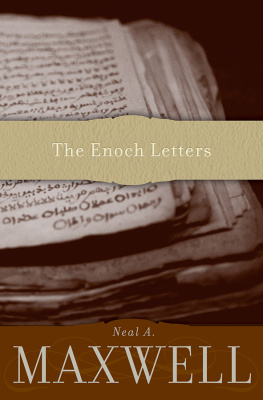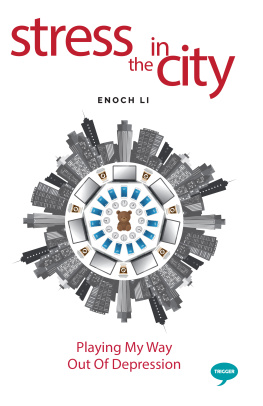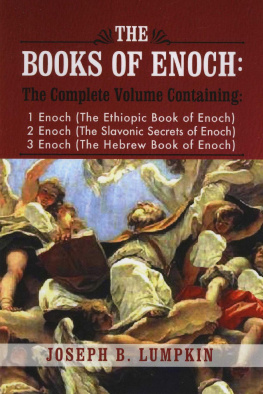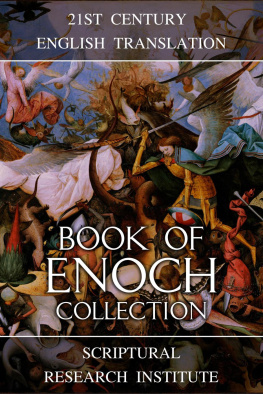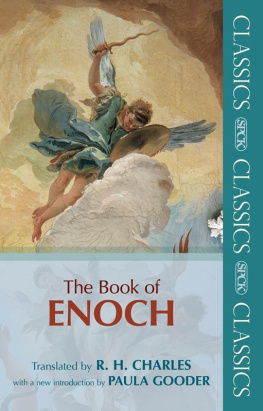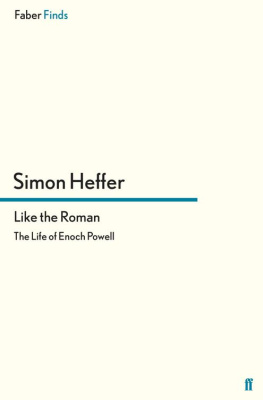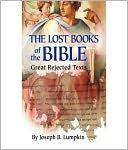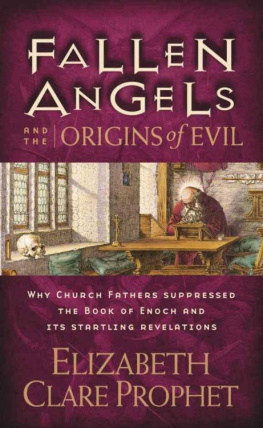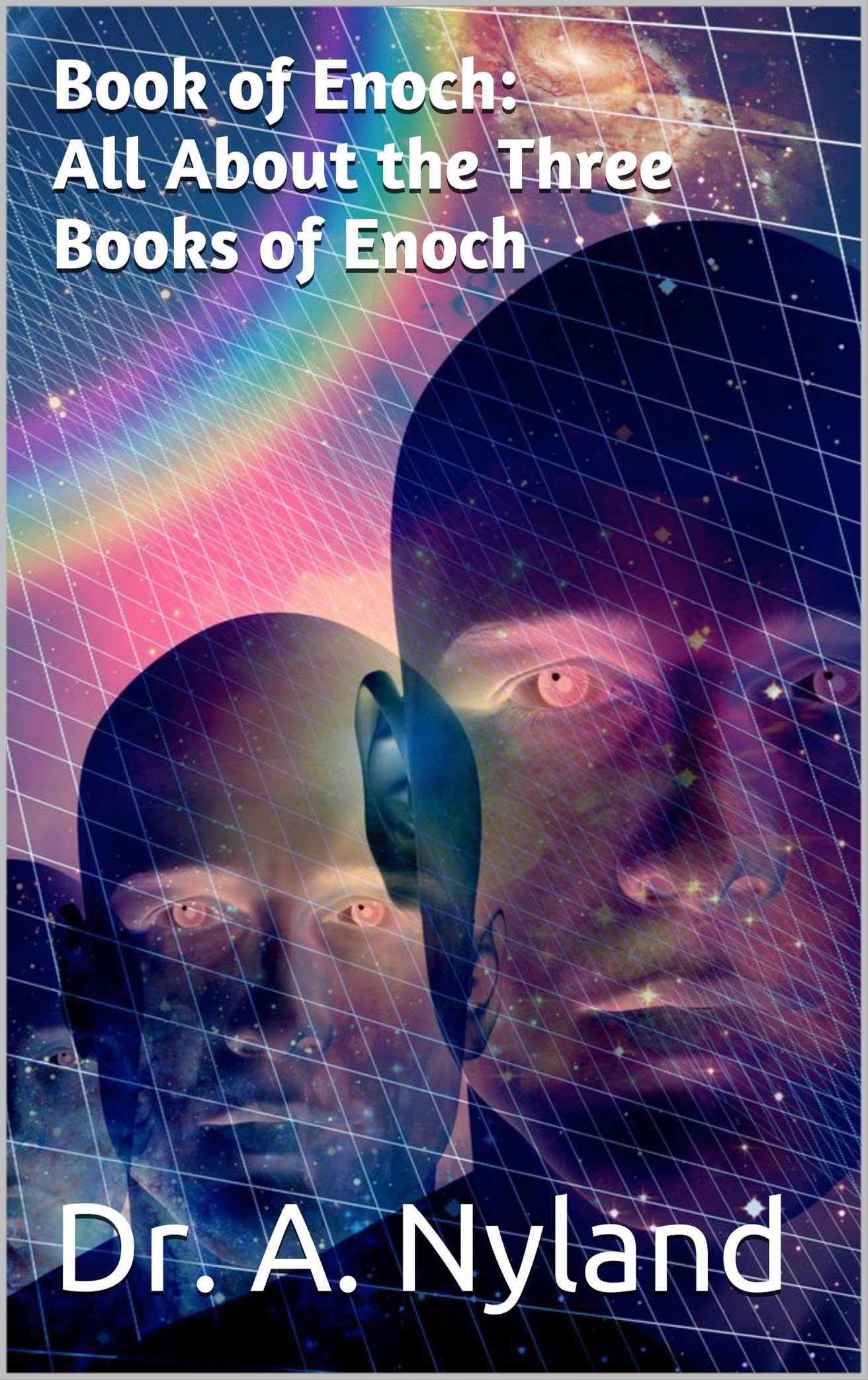
Book of Enoch: All About the Three Books of Enoch
Dr. A. Nyland
Book of Enoch: All About the Three Books of Enoch
Dr. A. Nyland
Copyright 2015 by Dr. A. Nyland
All Rights Reserved.
All translations are by Dr. A. Nyland unless otherwise noted.
Contents
T here are three Books of Enoch, all of which are unrelated to the other, although all of course, have their main character as Enoch.
Enoch was the son of Jared, great grandfather of Noah, and father of Methuselah, not to be confused with the Enoch who was the eldest son of Cain.
The book known for centuries as Book of Enoch is now called the First Book of Enoch, to distinguish it from the later The Secrets of Enoch, also known as the Second Book of Enoch. The First Book of Enoch is also called the Ethiopic Enoch, and the Second Book of Enoch is also known as Slavonic Enoch. No manuscript of the original language of either has as yet been discovered. The Third Book of Enoch is also known as the Hebrew Book of Enoch, as the evidence suggests it was originally written in Hebrew.
In a nutshell, here are the three books now known as The Book of Enoch.
1) The First Book of Enoch (Also called the Ethiopic Book of Enoch).
2) The Second Book of Enoch (Also called the Slavonic Book of Enoch, the Secrets of Enoch).
Some translations of the Second Book of Enoch contain the extended version of the Second Book of Enoch, which is known as the Exaltation of Melchizedek.
3) The Third Book of Enoch (Also called the Hebrew Book of Enoch, the Book of Palaces).
The First Book of Enoch tells of the Watchers, a class of angel, who taught weapons, spell potions, root cuttings, astrology, astronomy, and alchemy, to humans, and they did this all without Gods permission. The Watchers also had sex with human women and produced the Nephilim. For all the above crimes, they were imprisoned and cast into Tartarus. This is also mentioned in the New Testament.
In the Second Book of Enoch, two angels take Enoch through the seven heavens.
In the Third Book of Enoch, Enoch ascends to heaven and is changed into an angel by the name of Metatron. The Third Book of Enoch is about Merkabah Mysticism, which is a form of early Jewish mysticism. Merkabah means Throne-Chariot.
Merkabah Mysticism traces to the Merkabah practices of the first century C.E. The goal of Merkabah Mysticism was to ascend through various levels to Gods heavenly throne room and reach Gods Throne-Chariot (Merkabah) as described in Ezekiel 1:15-28. This was thought to be possible by entering a trance-like state by means of fasting, meditation, prayer, and incantation.
It was said that the traveler (the traveler being the man wishing to ascend through the levels) must pass through seven heavens. Once the traveler had reached the seventh heaven, he must then pass through seven concentric palaces. Gods Throne-Chariot was said to stand the innermost of seven palaces. Fierce angels were standing on guard to bar the gate to each palace. The angels were hostile, and had to be appeased through worship in order for the journey to succeed.
Once in front of Gods Throne-Chariot, the traveler worshiped God side by side with angels. The traveler was then able to observe the innermost secrets of all persons and all things.
The ascent to the highest heaven and the innermost sanctum was most hazardous, so perilous in fact, that there was a Jewish tradition which forbade the study of the beginning and the end of the Book of Ezekiel to any man under the age of thirty.
The Talmud (an important record of rabbinic teachings) states of Merkabah Mysticism, The subject of...the work of the chariot [may not be expounded]unless one is a sage who has innate understanding of it. Whoever speculates on [the work of the chariot], it would have been better if they had not come into the world. (Mishnah Hagigah 2:1)
The First Book of Enoch was left out of the Bible Canon, but a lengthy passage from the First Book of Enoch is quoted by Jude. This, at one time, cast doubts upon Judes inclusion in the New Testament canon. The early Church Father, Tertullian, considered that the Book of Enoch should in fact be included in the canon. Jerome, the third century Bible translator, stated, Jude, James brother, left a short letter which is considered among the seven broad letters, and because in it he quotes from the apocryphal book of Enoch it is rejected by many. Nonetheless by age and use it has gained authority and is considered among the Holy Scriptures.
Chapter 2
The First Book of Enoch
S cholars have not reached agreement about the identity of the author of the First Book of Enoch, but there is general agreement that several authors did in fact contribute to what we now call the First Book of Enoch.
Many ancient sources referred to the Book of Enoch, but it was not until 1773 that James Bruce discovered three copies in Ethiopia.
There are various sections of the First Book of Enoch:
The Book of the Watchers
Enochs travels through the Earth and through Sheol
The Account of the Watchers who did not fall
Enochs second journey
The Fragrant Trees
The Parables: The First Parable
The Second Parable
The Third Parable
The Book of Noah - a fragment
The Storehouses
The book of the revolutions of the heavenly luminaries
Enochs Letter to Methuselah
The Regulations of the Stars
Enochs First Vision
Prophecy About the Animals
Prophecy of the Ten Weeks
Enochs Message
The Book of Noah - a fragment
Enochs Concluding Words
The First Book of Enoch opens with the Watchers. Here is an extract from my translation: Complete Books of Enoch: All Three: New Translation with Extensive Commentary.
It happened after the humans had multiplied, that in those times daughters were born to them, and they were attractive and beautiful.
When the angels, the inhabitants of heaven, saw them, they lusted after them and said to each other, Come on, lets choose consorts for ourselves from the humans, and lets produce children!
Then their leader Semjaza said to them, Im concerned as I fear that perhaps you wont agree to carry out this venture, and that I alone will have to pay the penalty for such a serious crime.
But they answered, Lets all swear an oath, and bind ourselves by mutual curses, that we will not change our minds but carry through this venture.
So they swore all together and bound themselves by mutual curses.
What are angels?
Angels were actually messengers. Our English word Angel is a transliteration of the ancient Greek word, and not a translation.
To explain: Here is the word for angel in ancient Greek:
Here are the English letters:
angelos
The English meaning, the translation, is messenger.
To transliterate (noun, transliteration) simply means to put the Greek letters into English letters.
Here is another example of the difference between transliteration and translation.
Next page

